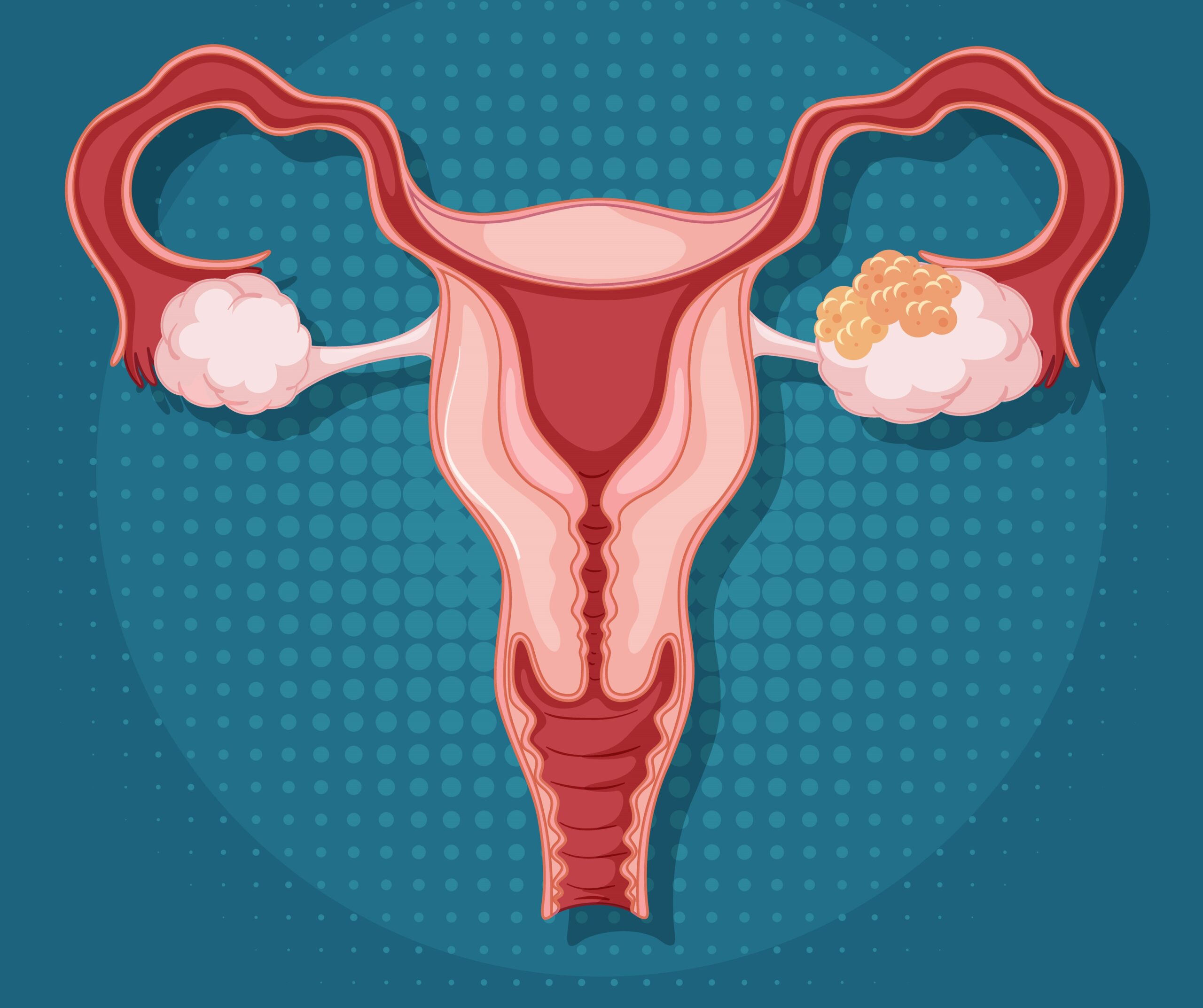
PCOD/PCOS: Understanding the Silent Battle Faced by Women
During ovulation, a mature follicle releases the egg for potential fertilization. In PCOS, due to hormonal imbalances, these follicles may not develop and mature as they should. As a result, multiple immature follicles accumulate in the ovaries, giving the appearance of "cysts."
Polycystic ovary syndrome (PCOS), also known as polycystic ovarian disorder (PCOD), is a common hormonal disorder that affects millions of women worldwide. This complex condition not only impacts a woman’s reproductive health but also has broader implications on her overall well-being. Understanding PCOD/PCOS is crucial in order to recognize its symptoms, seek timely medical intervention, and support those affected by it.
What is PCOD/PCOS?
In polycystic ovary syndrome (PCOS), the term “cysts” is somewhat misleading. The name suggests that the ovaries contain multiple fluid-filled sacs or cysts. However, these structures are not true cysts but rather small follicles that have not matured or ovulated properly.
In a healthy menstrual cycle, the ovaries produce follicles, which are fluid-filled sacs that contain an immature egg. During ovulation, a mature follicle releases the egg for potential fertilization. In PCOS, due to hormonal imbalances, these follicles may not develop and mature as they should. As a result, multiple immature follicles accumulate in the ovaries, giving the appearance of “cysts.”
These follicles in PCOS are usually less than 10 millimeters in size and contain an immature egg surrounded by a thicker layer of cells compared to a mature follicle. These enlarged follicles can be visualized using ultrasound scans, which may show a “string of pearls” appearance in the ovaries due to the accumulation of these immature follicles.
It is important to note that these follicles or “cysts” in PCOS are not the same as other types of ovarian cysts, such as functional cysts or ovarian tumors. PCOS-related “cysts” do not typically require surgical intervention and usually do not cause severe complications.
The presence of these follicles or “cysts” in PCOS is just one aspect of the condition. PCOS is a complex hormonal disorder characterized by various symptoms, including irregular menstrual cycles, hormonal imbalances, and metabolic disturbances. The formation of these immature follicles is a result of disrupted hormone levels, particularly elevated levels of luteinizing hormone (LH) and androgens (male hormones) in relation to estrogen and progesterone.
While the term “cysts” may be used colloquially to describe the appearance of the ovaries in PCOS, it is important to understand that these structures are not true cysts but rather immature follicles that have not progressed to ovulation.
The exact cause of PCOD/PCOS is still unknown, but researchers believe it to be a combination of genetic and environmental factors. Insulin resistance, which affects how the body processes glucose, and high levels of LH and androgens (male hormones) are believed to play significant roles in its development.
Symptoms and Diagnosis
PCOD/PCOS manifests differently in everyone, making diagnosis a challenging task. Some of the common symptoms include irregular menstrual cycles, excessive hair growth (hirsutism), acne, weight gain, and difficulty getting pregnant. Psychological symptoms such as anxiety, depression, and mood swings are also commonly reported.
To diagnose PCOD/PCOS, healthcare professionals consider a combination of medical history, physical examinations, and laboratory tests. Blood tests to measure hormone levels, ultrasound scans to detect cysts on the ovaries, and ruling out other conditions with similar symptoms are crucial steps in reaching an accurate diagnosis.
One of the significant challenges faced by women with PCOD/PCOS is related to their reproductive health. Irregular menstrual cycles and anovulation (lack of ovulation) often make it difficult for affected women to conceive. Fertility treatments, such as ovulation induction and assisted reproductive technologies, are commonly employed to aid conception.
PCOD/PCOS also increases the risk of pregnancy complications, such as gestational diabetes, high blood pressure, and premature birth. Therefore, women with PCOD/PCOS require vigilant prenatal care to ensure a healthy pregnancy and delivery.
Beyond Reproductive Health
While PCOD/PCOS is primarily associated with reproductive health, its impact extends beyond the ovaries and menstrual cycle. Women with PCOD/PCOS often struggle with metabolic issues, such as insulin resistance, obesity, and increased risk of developing type 2 diabetes and cardiovascular diseases. Lifestyle modifications, including regular exercise, a balanced diet, and weight management, are important in managing these aspects of the condition.
Furthermore, the psychological effects of PCOD/PCOS should not be overlooked. Hormonal imbalances and the physical symptoms associated with the condition can lead to emotional distress, anxiety, and depression. It is crucial to address these mental health concerns and provide adequate support to those affected.
Management and Treatment
Managing PCOD/PCOS involves a multidimensional approach targeting the various aspects of the condition. Lifestyle modifications, such as maintaining a healthy weight, exercising regularly, and following a balanced diet, are fundamental in reducing symptoms and improving overall well-being. Medications may be prescribed to regulate menstrual cycles, reduce androgen levels, and manage associated conditions such as diabetes or high blood pressure.
Support from healthcare professionals, support groups, and loved ones is essential in managing PCOD/PCOS effectively. Raising awareness about the condition, its symptoms, and available treatment options can empower affected individuals to seek appropriate medical care and support.
Role of Homeopathy
As mentioned above PCOD is a complex hormonal disorder and it is treatable with Homeopathy. A thorough case taking, a healthy diet, a healthy lifestyle, patience is required for its treatment. As the symptoms vary among patients; treatment plan for every patient is tailored according to symptoms, constitution, and various other factors. If you or your known has symptoms related to PCOD or has PCOD, feel free to Contact Dr. Singh’s Homeopathy.
Conclusion
PCOD/PCOS is a complex hormonal disorder that affects numerous women globally, impacting their reproductive health, metabolism, and emotional well-being. Early diagnosis, combined with lifestyle modifications and appropriate medical intervention, can significantly improve the quality of life for individuals living with PCOD/PCOS. By fostering awareness, understanding, and support, we can create a more inclusive and empathetic society for those battling this silent condition.

